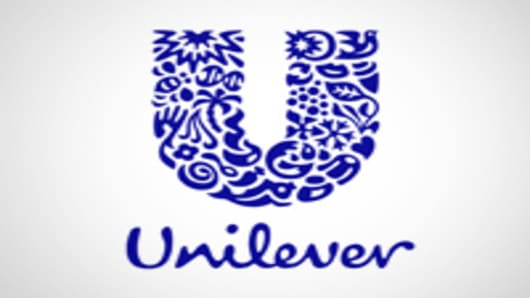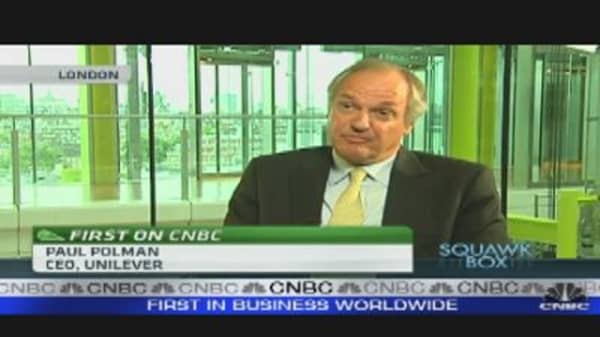Emerging markets will make up three-quarters of consumer goods giant Unilever's sales within a decade, up from 54 percent at the moment, chief executive Paul Polman told CNBC Thursday.
Profits and sales rose at Unilever rose in the second quarter of 2011, despite pressure on margins from rising materials costs, the company announced Thursday.
Much of this growth came from emerging markets.
"We've seen healthy growth, and we're doing well where the battles are fiercest: China: India; Indonesia; Argentina and Mexico," said Polman.
"In terms of population growth, this is where the next 2.5 billion people will come from, and as their income increases, these people aspire to the same quality of life that we have become accustomed to."
Underlying sales at the maker of Dove soap, Persil washing powder and Hellmann's mayonnaise were up by 5.7 percent in the first half from the same time a year before, with 2.2 percent coming from rising volumes and 3.5 percent from price increases.
Polman said that commodity prices were "stabilizing"but at "higher prices".
"I think we have seen the peak for the rest of the year at least."
Turnover rose by 4.1 percent to 22.8 billion euro ($32.6 billion), with a negative impact from foreign exchange of 1.6 percent as the strength of the euro continued.
Underlying operating margin fell by 20bps as Unilever offset the impact of high input cost inflation, powered by rising oil and other commodity prices, by raising prices and cutting its advertising spend.
Paul Polman, who took over as chief executive in 2009 with the stated aim of driving volumes at the company, said in a statement: “We are making encouraging progress in the transformation of Unilever to a sustainable growth company. In a tough and volatile environment we have again delivered strong growth."
He added that the company had experienced double digit growth in emerging markets, while growth in developed markets was slower.
However, performance in Western Europe was described as "strong", despite the euro zone's well-documented troubles.
"Bigger and better innovation rolled out faster and moving our brands into white spaces continue to be the biggest drivers of growth, said Polman, who will appear on CNBC at 0740 CET.




